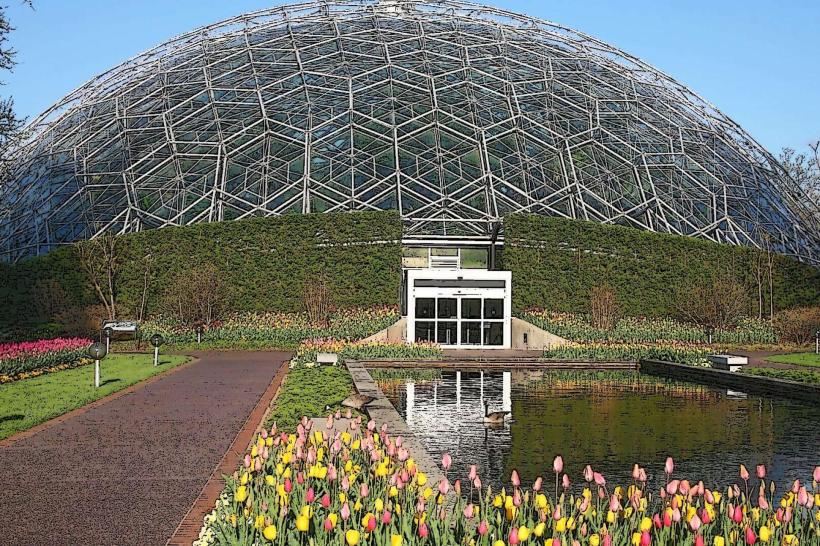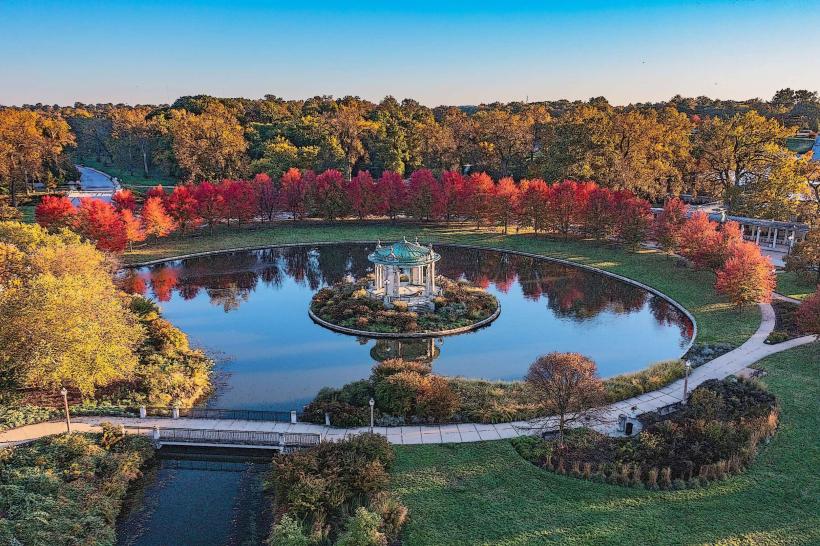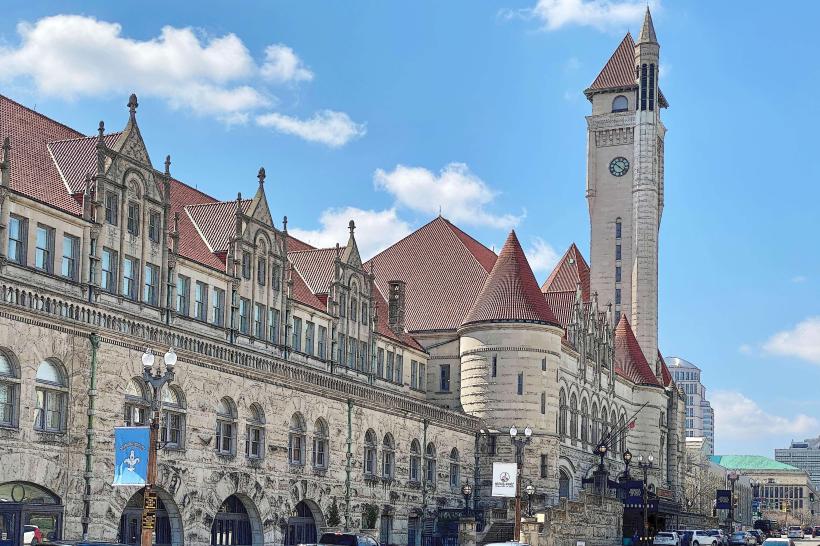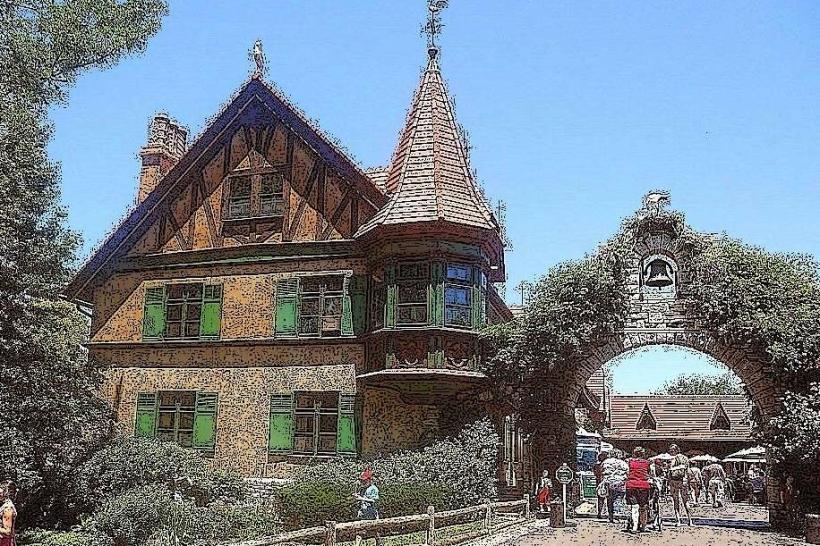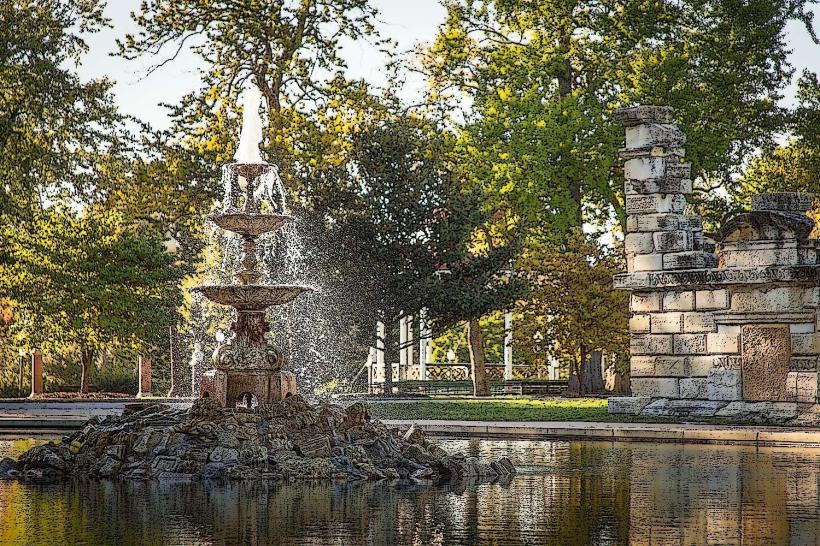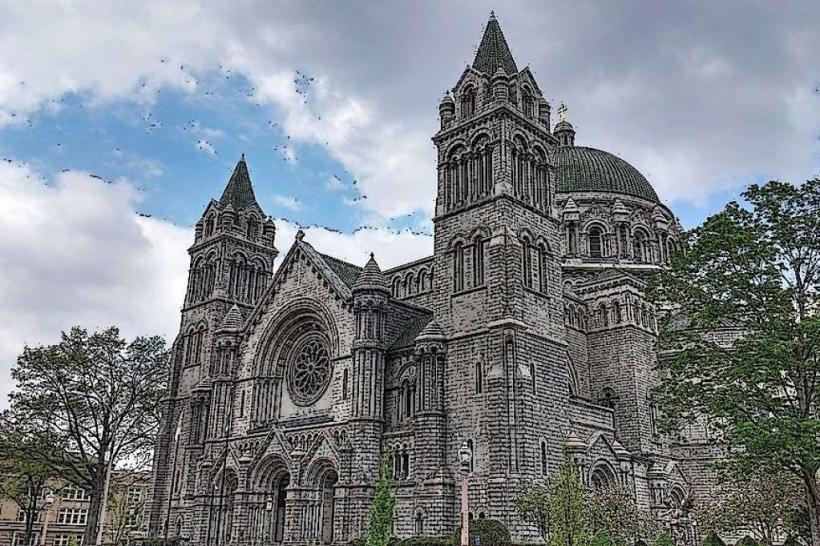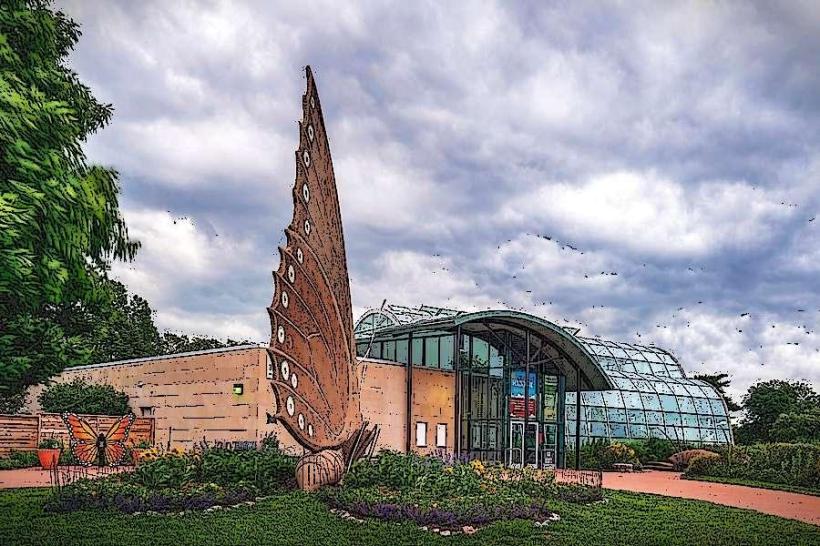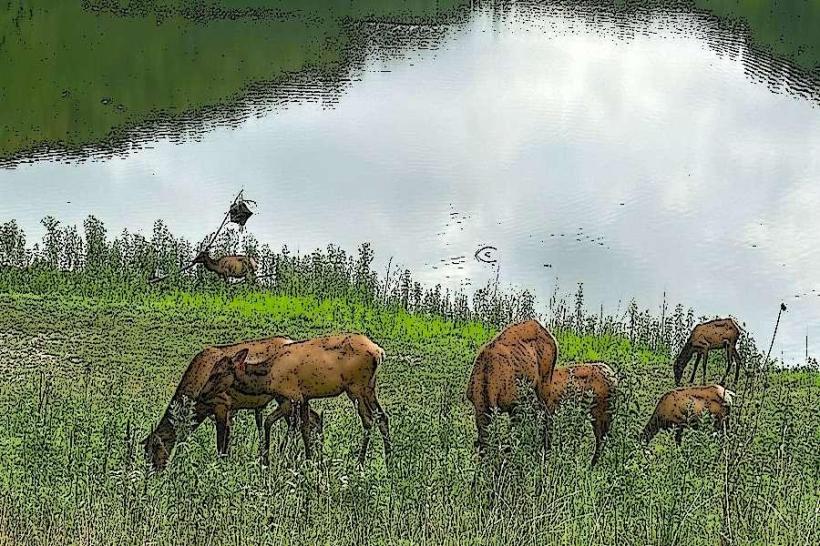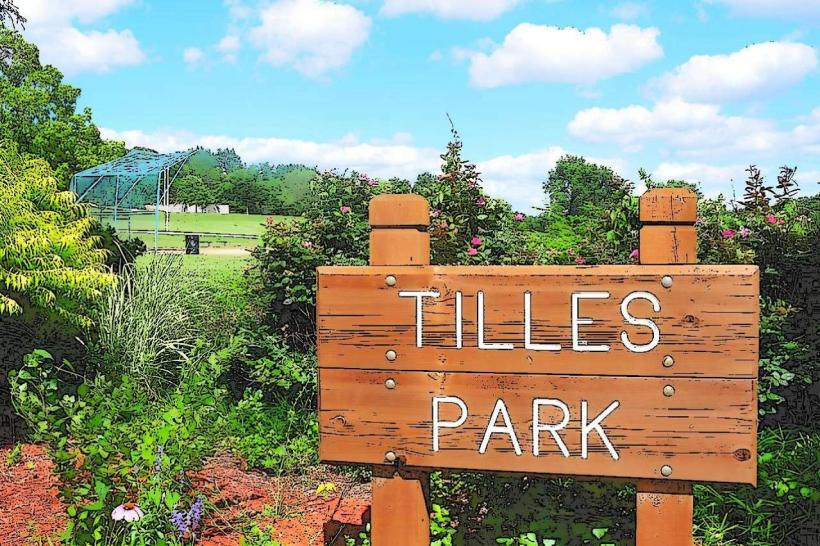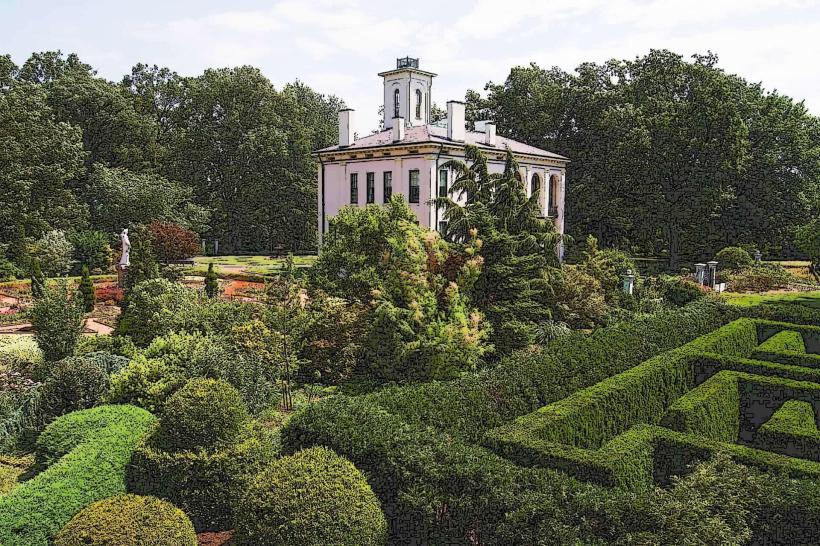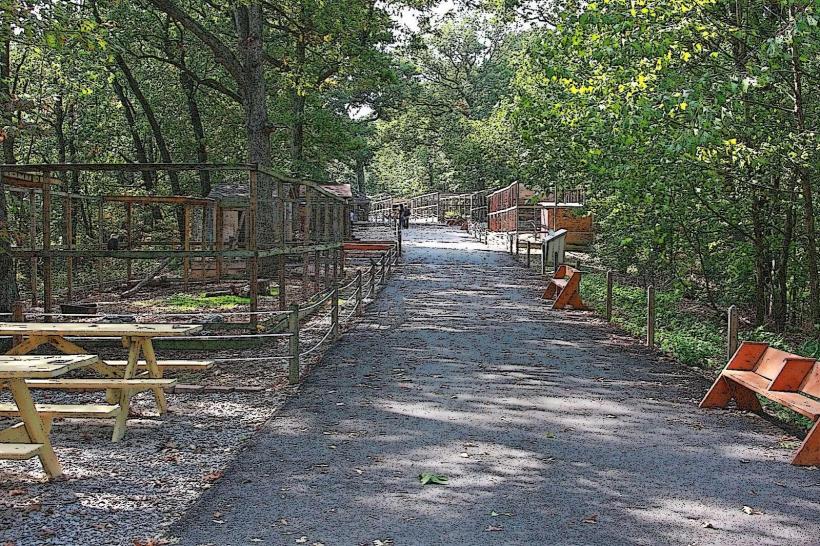Information
Landmark: Shaw Nature ReserveCity: St Louis
Country: USA Missouri
Continent: North America
Shaw Nature Reserve, St Louis, USA Missouri, North America
Shaw Nature Reserve is a sprawling 2,400-acre natural sanctuary located in Gray Summit, Missouri, approximately 35 miles southwest of St. Louis. Operated by the Missouri Botanical Garden, it serves as a vital extension of the Garden’s mission to conserve native plant species and natural habitats while providing a space for environmental education, scientific research, and public recreation. Established in 1925, Shaw Nature Reserve is one of the oldest and largest privately protected natural areas in Missouri, dedicated to preserving the diverse ecosystems characteristic of the region.
Natural Environment and Ecosystems
The reserve is a mosaic of diverse natural habitats, showcasing the ecological richness of Missouri’s native landscapes. Its extensive acreage includes:
Tallgrass Prairies: Remnants of the once vast prairie ecosystems, these open grasslands are home to native grasses, wildflowers, and a variety of wildlife adapted to this environment.
Woodlands and Forests: Mixed hardwood forests dominate much of the reserve, featuring native oak, hickory, and maple trees. These forests provide essential habitat for mammals, birds, and numerous plant species.
Wetlands and Marshes: Several wetlands and floodplain areas are preserved within the reserve, including Cypress Lake and bottomland forests along the Meramec River corridor. These aquatic habitats support amphibians, fish, turtles, and waterfowl.
Glades and Rocky Outcrops: The reserve also features limestone glades-open, rocky areas with unique plant communities adapted to thin soils and high sunlight exposure.
Trails and Outdoor Activities
Shaw Nature Reserve offers over 18 miles of hiking trails that traverse its varied environments, ranging from easy loops to more challenging routes. Notable trails include:
Shaw Wildflower Trail: A 1.1-mile loop popular in spring for its colorful displays of native wildflowers, making it a prime destination for botanists and nature photographers.
Rus Goddard River Trail: A 2.5-mile trail that follows the Meramec River, leading hikers to a gravel bar where visitors can enjoy scenic river views and opportunities for birdwatching.
Pinetum Loop: This trail meanders through the Pinetum, an area planted with a variety of native and exotic conifer species, blending botanical interest with natural beauty.
The trails are well-marked and maintained, designed to encourage exploration and appreciation of Missouri’s natural heritage. Visitors can enjoy wildlife observation, photography, and peaceful immersion in nature.
Whitmire Wildflower Garden
A centerpiece of the reserve is the Whitmire Wildflower Garden, a curated 10-acre garden showcasing over 80 species of native Missouri plants. This garden highlights the beauty and ecological importance of local flora, serving as both a conservation area and an educational exhibit. It illustrates how native plants contribute to biodiversity, support pollinators, and fit into regional ecosystems. The garden is designed to inspire visitors to incorporate native plants into their own landscapes for sustainable gardening.
Historic and Educational Facilities
Bascom House: This historic Italianate-Victorian home, built in 1879, provides a glimpse into the region’s cultural and architectural history. Inside, exhibits explore the relationship between humans and the natural environment over thousands of years, emphasizing conservation themes.
Dana Brown Overnight Education Center: Comprised of four log cabins dating from the 1850s, this center facilitates overnight stays for school groups and nature programs. It supports immersive educational experiences that connect participants directly to the natural world through hands-on activities and evening programs.
Wildlife and Conservation Efforts
The reserve is a critical habitat for a wide array of wildlife. Bird species are abundant, with the park’s location along the Mississippi Flyway making it an important stopover for migratory birds such as the cerulean warbler, a species of conservation concern. Amphibians, reptiles, mammals, and a variety of insects thrive in the protected habitats.
Conservation efforts at Shaw Nature Reserve focus on habitat restoration, invasive species control, and scientific research aimed at understanding and preserving Missouri’s native ecosystems. The reserve collaborates with academic institutions, conservation organizations, and volunteers to monitor and enhance biodiversity.
Visitor Experience and Amenities
Shaw Nature Reserve is open daily from 8 a.m. to 5 p.m., with the last entry allowed at 4:30 p.m. Admission costs $5 for adults, while children under 12 and Missouri Botanical Garden members are admitted free. Visitors have access to trail maps, guided walks, educational signage, and picnic areas, making it suitable for families, school groups, and nature enthusiasts.
The reserve maintains a visitor center that offers information on the trails, natural history, and upcoming programs. Seasonal guided hikes, workshops, and nature-themed events are regularly held to deepen public engagement and environmental awareness.
Centennial Celebration and Future Vision
In 2025, Shaw Nature Reserve marks its 100th anniversary, celebrating a century of dedication to ecological preservation and education. The centennial year features special events, expanded programming, and renewed commitments to long-term conservation goals. The reserve aims to continue fostering a connection between people and nature, emphasizing sustainability and stewardship for future generations.
Summary
Shaw Nature Reserve stands as a premier natural landmark in Missouri, offering vast, protected landscapes that preserve the state’s ecological diversity while providing meaningful educational and recreational opportunities. From its pristine prairies and woodlands to historic buildings and native plant gardens, the reserve blends environmental conservation with cultural heritage. It invites visitors to explore, learn, and contribute to the ongoing effort to protect Missouri’s natural legacy within a tranquil and inspiring setting.


